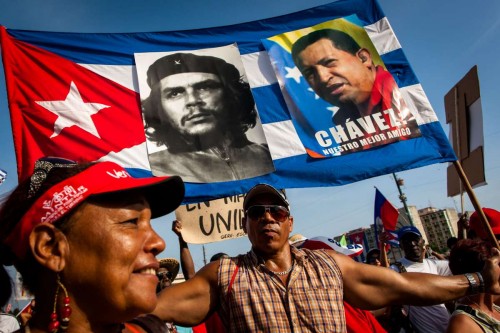UN General Assembly again urges US to end Cuba embargo ….reports Arul Louis

The UN General Assembly (UNGA) asked the US to lift its Eisenhower-era embargo against Cuba in a near unanimous vote Tuesday that showed a stark isolation of Washington on the issue.
Only Israel voted with the US against the resolution while closest allies like Britain voted for it.
The resolution, however, does not compel the US to abandon the sanctions but is in effect only a barometer of international sentiments.
Similar resolutions have been passed 22 times before and this time it got 188 votes, with only the US and Israel voting against it and three tiny Pacific island nations abstaining.
Expressing India’s support for the resolution, Amit Narang, spoke of the embargo’s toll on the Cuban people. The US embargo and sanctions “hinder the full enjoyment of human rights, including the right to development, food, medical care and social services,” Narang, counsellor at India’s UN mission, told the UNGA.
“Embargoes impede the full achievement of economic and social development by the population of the affected country, in particular children and women.”
The embargo, which began in October 1960 during Dwight Eisenhower’s presidency and was further tightened by president John Kennedy, restricts travel, exports and investments.
The US has made Havana’s democratisation and settlement of old debts a condition for ending the embargo, which remains a pillar of US policy upheld by an influential
Cuban expatriated community and the Republican Party.
Although some of the provisions of US laws on the embargo could penalise foreign companies dealing with Cuba, generally they have not been enforced.
Oil exploration is the centerpiece of India’s economic relations with Cuba. Although the bilateral trade between India and Cuba was only US $38.96 last year, ONGC Videsh has invested over US $130 million for oil exploration off the Cuban coast.
Narang also took this opportunity to express India’s opposition in principle to sanctions, which also target countries like Iran.
“The international community also needs to re-double its efforts to promote an environment free from sanctions and embargoes,” he said.
He noted, “The General Assembly has also called upon all States, in conformity with their obligations under the United Nations Charter and international law, to refrain from promulgating and applying, as well as repeal and invalidate, laws and measures that have extra-territorial effects affecting the sovereignty of other states.”
The overwhelming international support for Cuba comes from its humanitarian efforts in Africa and Latin America. Joseph Goddard, the Barbados ambassador, highlighted Cuba’s major role in fighting Ebola in West Africa where it is sending 461 medical personnel, the largest international contingent.